#franklin massachusetts
Explore tagged Tumblr posts
Text
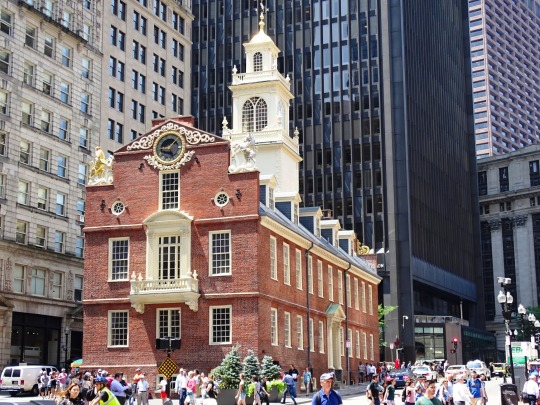
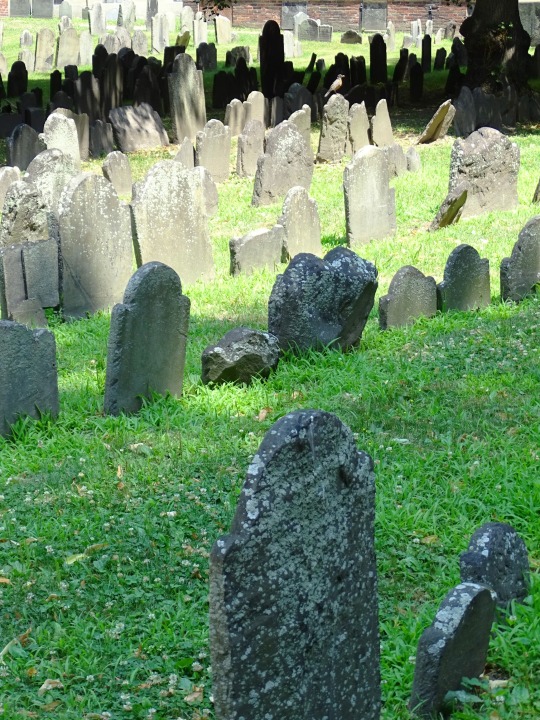
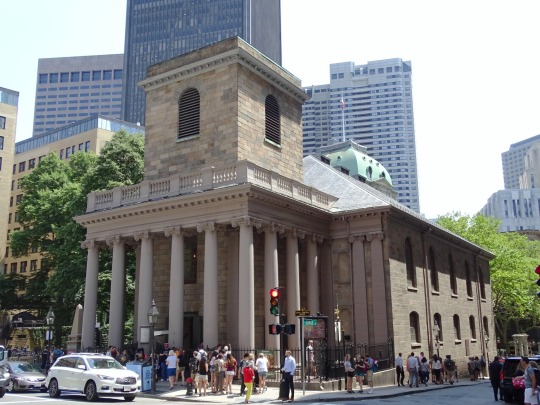
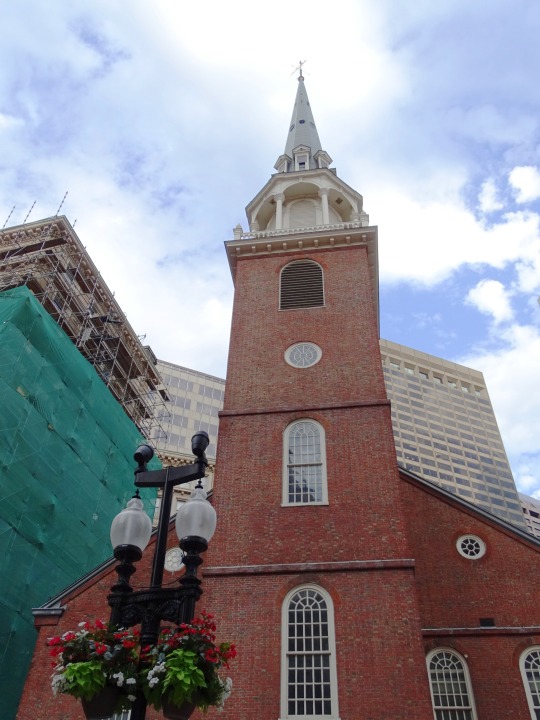
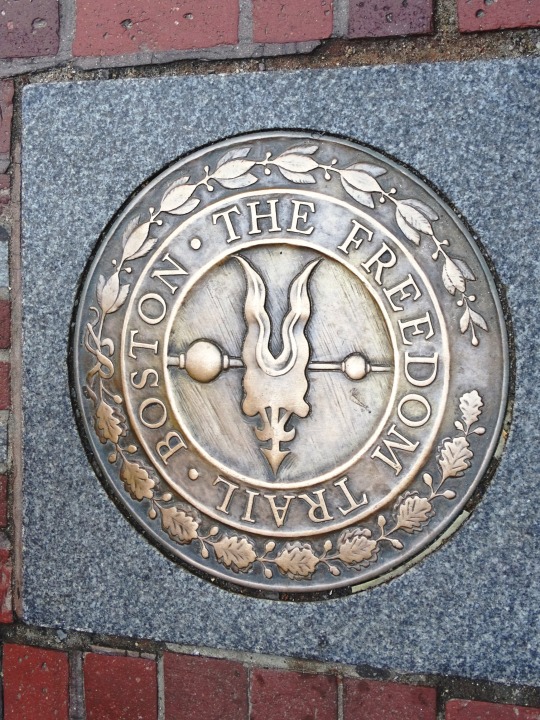
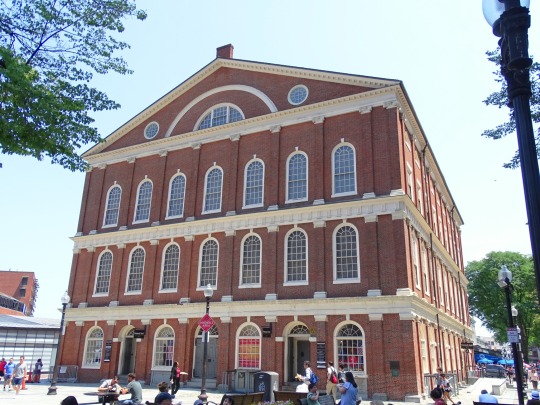
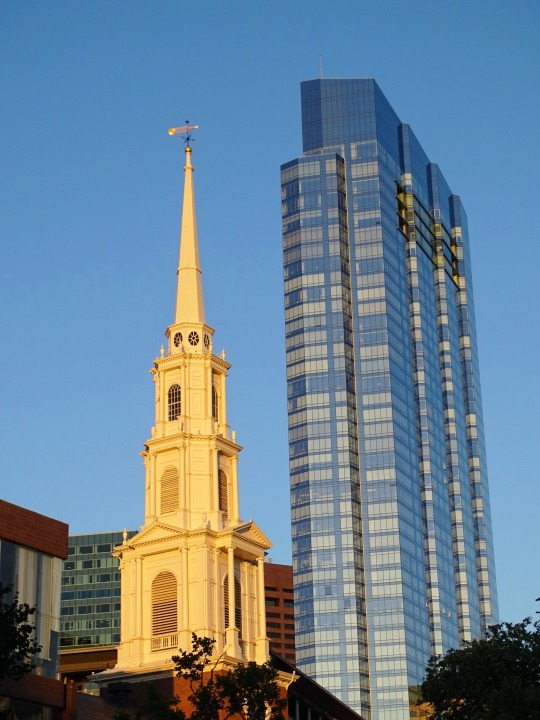
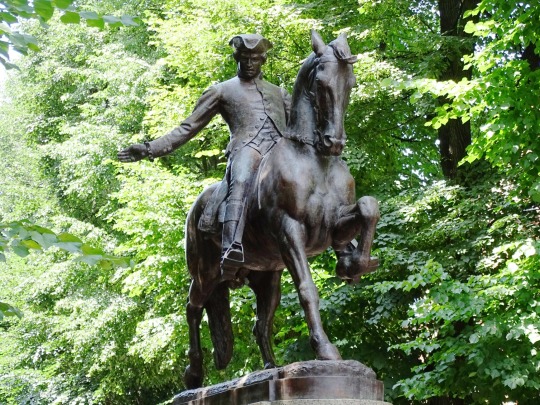
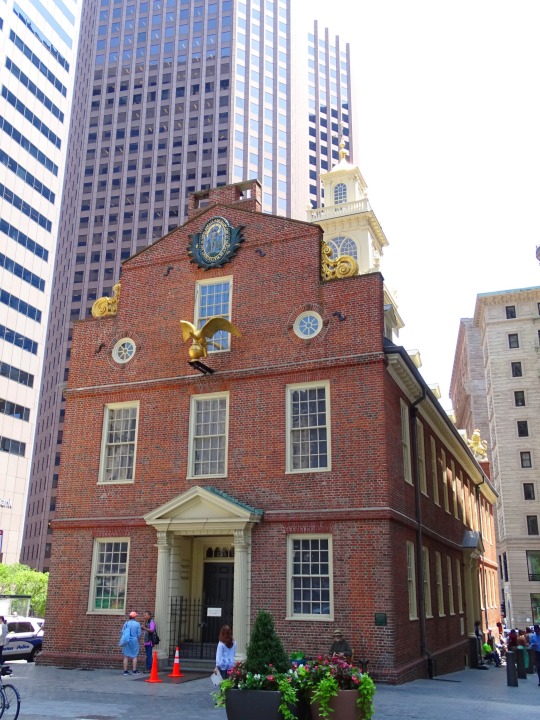
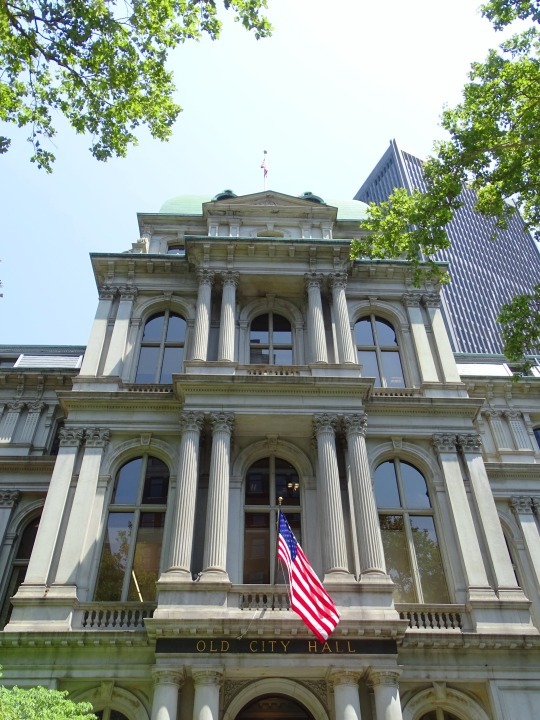
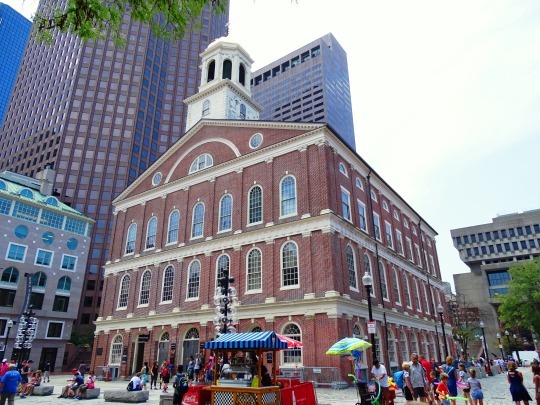
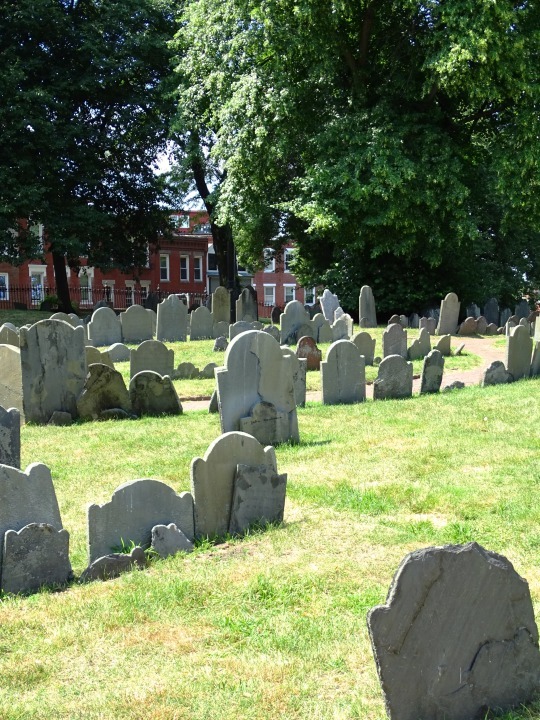
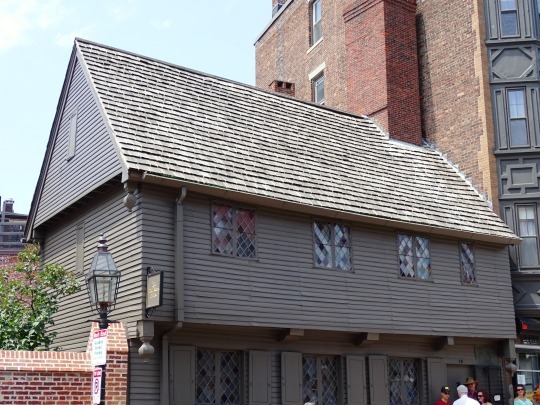
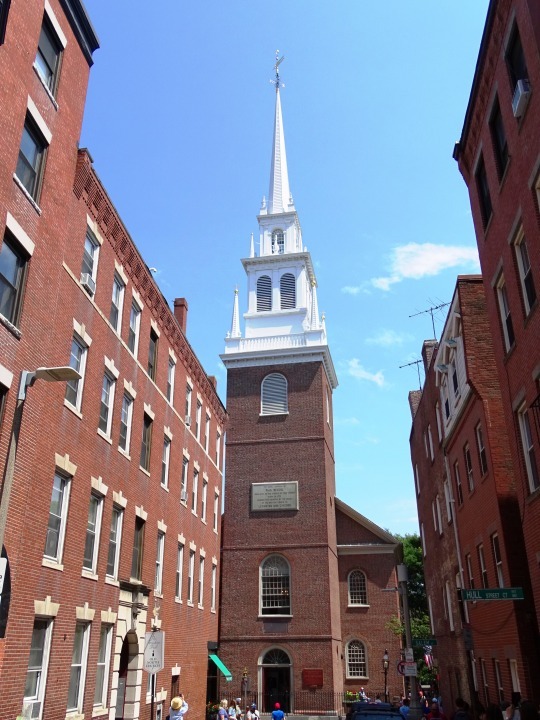
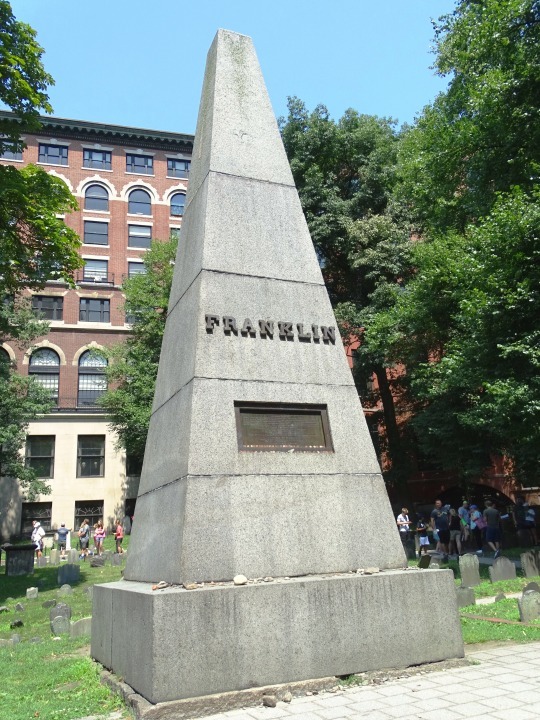
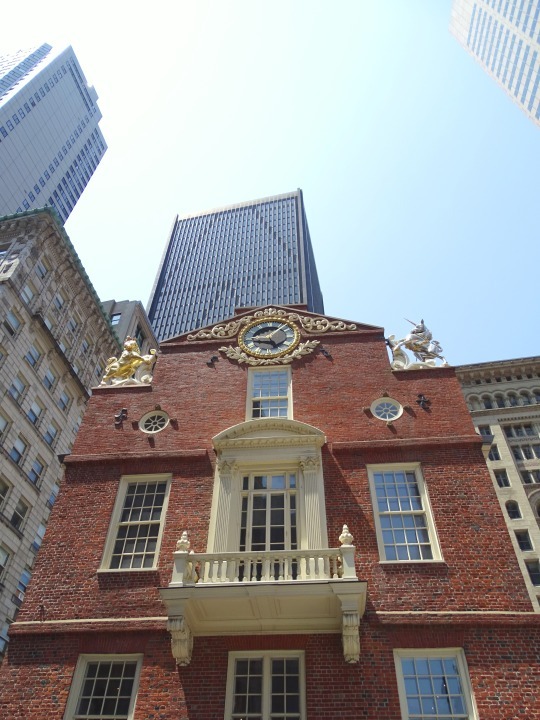
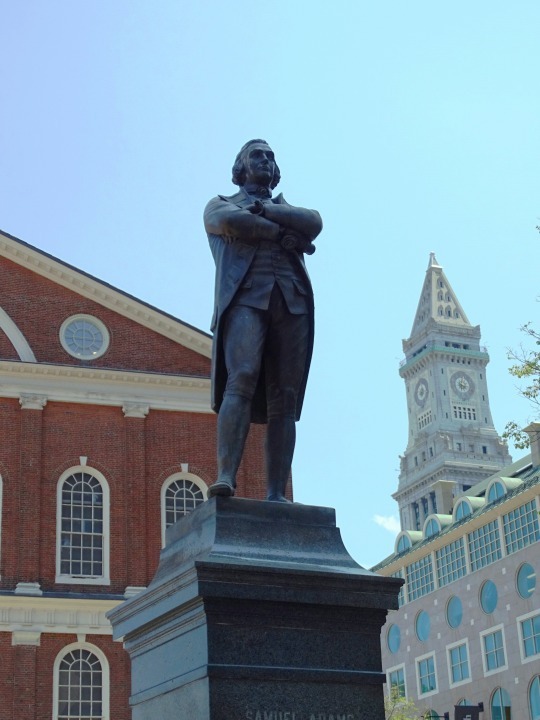
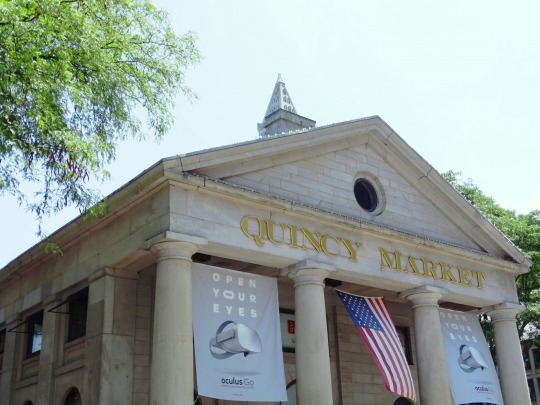
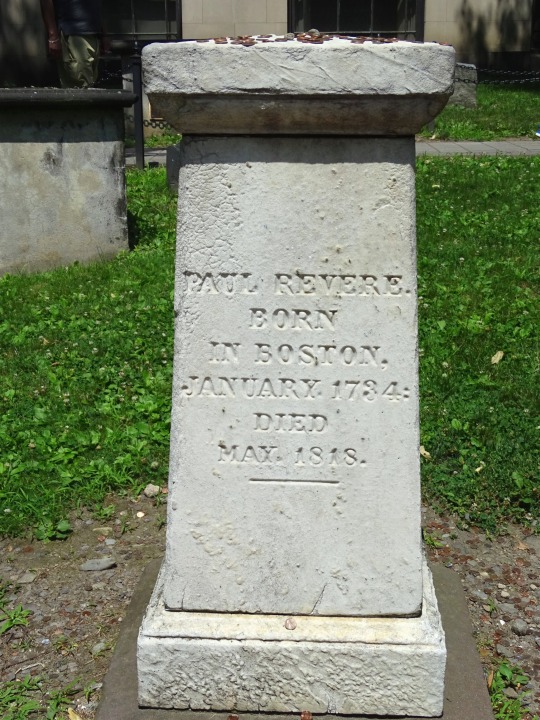
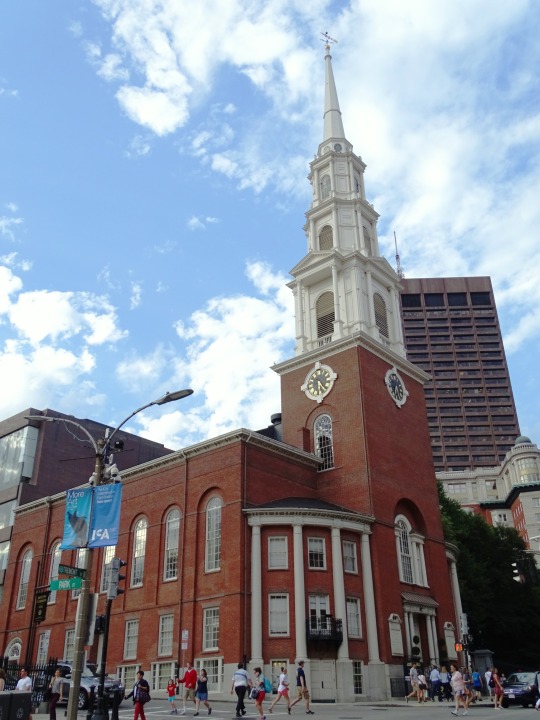
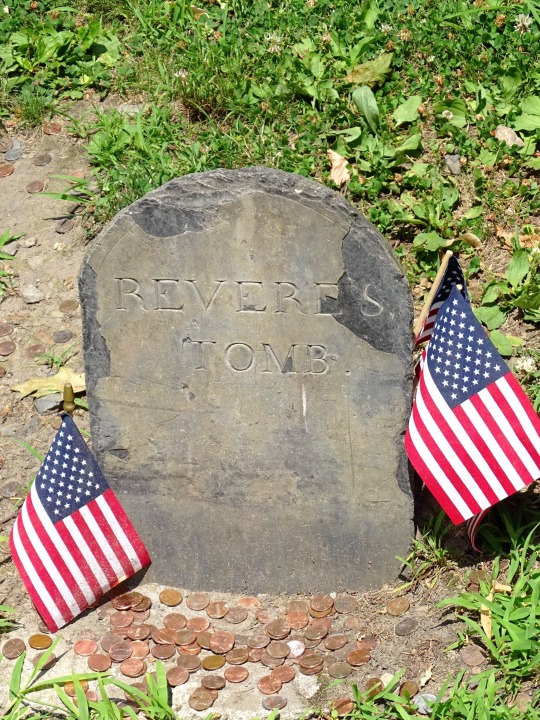
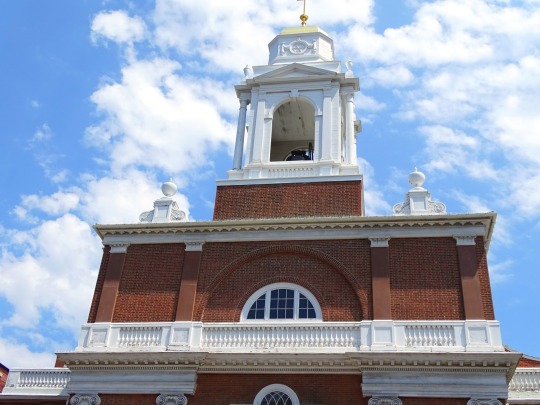
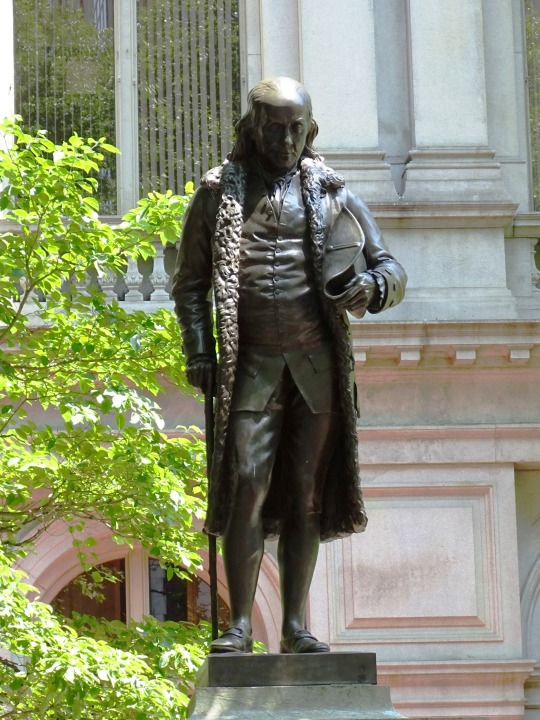
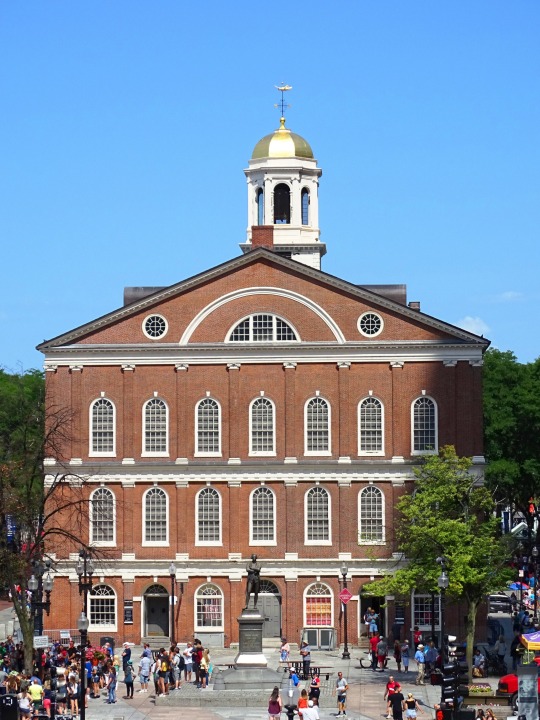
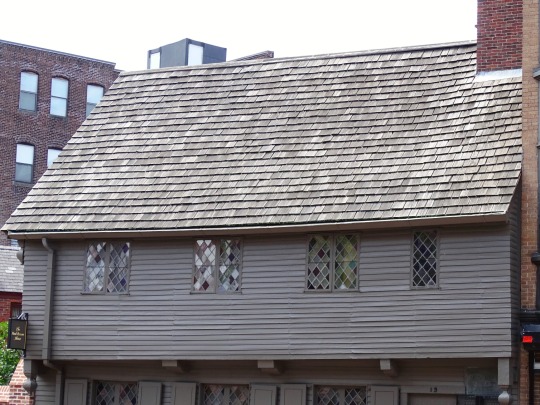
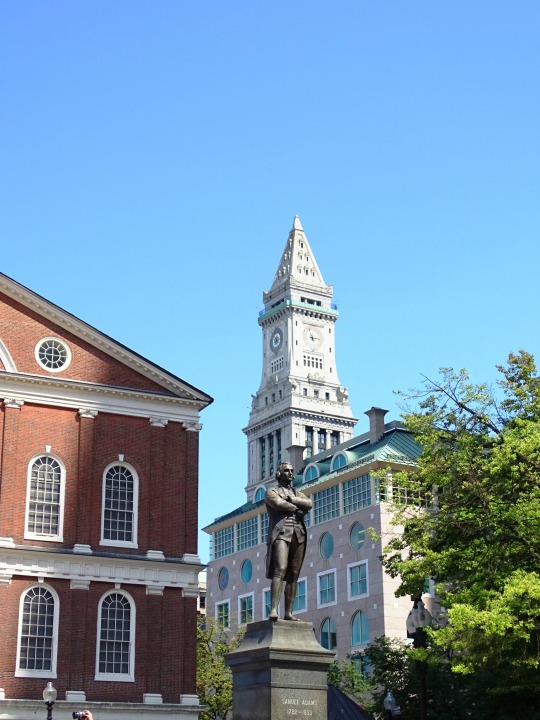
Boston Tea Party Day
There were numerous factors that converged to create an environment that was ripe for an event like the Boston Tea Party to take place, which occurred on today's date in 1773. Some of these included the popularity of tea in the colonies, British debt, acts of Parliament that taxed colonists, the Boston Massacre, and the propping up of a British tea company. The Boston Tea Party can be seen as a tipping point that spurred the revolutionary movement forward, which ultimately allowed for the creation of the United States. It is because of its importance to the formation of the country that we mark Boston Tea Party Day.
Although Britain had been victorious in the Seven Years' War (1756-1763), they had accumulated a great national debt and looked to the American colonies for revenue. Parliament instituted taxes on the colonies, the first being the Stamp Act of 1765, which required colonists to pay a tax on printed paper such as newspapers, business cards, and legal documents. Colonists argued that only their representatives in the colonies should have the power to tax them, and that "taxation without representation" was unjust. The Stamp Act was repealed the following year, but the Townshend Acts of 1767 created even more taxes than the Stamp Act, placing them on items such as paper, paint, glass, and tea. The revenue for these taxes was to pay for the salaries of the royal colonial governors. Colonists once again bristled at the idea of being taxed without representation, and they organized boycotts of the taxed goods. Because of this pressure, in April 1770, all of the Townshend Acts except the tax on tea were repealed. The tax on tea was kept as a symbol of Parliament's power and right to levy a tax on the colonies.
Another incident occurred the month before the Townshend Acts were repealed which also raised the discontent of colonists: the Boston Massacre. Colonists had been irritated that British troops were patrolling their streets, and this pent up anger took the form of action when a mob of colonists threw snowballs at a British sentinel who was guarding the Boston Customs House. British reinforcements arrived and the colonists were fired on. Five lost their lives and six more were injured. The colonial frustration that sparked the Boston Massacre only intensified following it.
Colonists drank about 1.2 million pounds of tea a year. With the repeal of the Townshend Acts, boycotting of British tea abated, although some colonists avoided it and drank smuggled Dutch tea instead. Everything changed after Parliament passed the Tea Act in May 1773. This act was created to save the faltering British East India Tea Company and to turn it into a monopoly in the colonies; the act wasn't designed to raise revenue, but to bail out the tea company, which was valuable to Britain's economy. It allowed the British East India Company to sell tea cheaper than anyone else because it stipulated that the tea didn't need to land in England on its way to the colonies, where an additional tax would have had to have been paid. The tea was still taxed at colonial ports, however. Overall, though, the Tea Act lowered the price of tea from the British East India Company, and the company was able to monopolize the market.
Some thought the Tea Act was made as a way to get colonists to accept and support the idea that Parliament could tax colonists. Even though the price of tea was now cheaper for colonists, they were not supportive of the Tea Act. They had never accepted the right of Britain to place duties on tea, and the act reinvigorated their opposition. The act revived the boycotting of tea, and more people began to smuggle Dutch tea, although it was actually more expensive than the British tea. Two of the most prominent tea smugglers were John Hancock and Samuel Adams. The act negatively affected colonial merchants and these merchants and patriot groups like the Sons of Liberty found themselves aligned in opposition to Britain in a way they hadn't prior. Colonists continued to protest against the tea tax and against British control, and in some ports, they were able to force ships with tea from unloading their cargo.
Then, on the night of December 16, 1773, the first major act of resistance to British rule took place, when the Boston Tea Party occurred at Griffin's Wharf in Boston Harbor. The Sons of Liberty, formed of colonial merchants and tradesmen and comprised of noteworthy members such as Samuel Adams, John Hancock, Paul Revere, and Patrick Henry, had been founded to protest taxation, particularly the Stamp Act. They had spoken against Parliament in their meetings, and when the Dartmouth, a ship filled with tea from the British East India Company, came to Griffin's Wharf in 1773, they protested. By mid-December, the ship had been joined by Beaver and Eleanor, which also carried tea. On the morning of December 16, colonists came together in the area around the wharf, and a meeting was held at the Old South Meeting House. They agreed not to pay any taxes on the tea, or to allow it to be unloaded, stored, sold, or used. At the same time, Governor Thomas Hutchinson said the ships could not return to Britain, the tea tariff had to be paid, and that the tea had to be unloaded. Colonists refused all of these demands.
At least 60—and perhaps more than 100—Massachusetts colonists, believed to be part of the Sons of Liberty, disguised themselves as Mohawk American Indians, boarded the ships and dumped 342 crates or chests of tea into Boston Harbor. They split the crates with their tomahawks so that the tea would be exposed when it hit the water. After almost three hours, they had emptied more than 90,000 pounds of tea into the harbor. In today's dollars, the tea would be valued at about $1,000,000. No other damage was done to the ships or other property. It is not known who was all involved, but the event, which became known as the Boston Tea Party, is believed to have been led by Samuel Adams and organized by John Hancock. Most participants were under the age of 40, and some were teenagers. Only one person was arrested and imprisoned: Francis Akeley. Not all of the Founding Fathers were happy with what happened in Boston. George Washington and Benjamin Franklin were not pleased by it, and Franklin believed that the British East India Company should be reimbursed.
In response to the Boston Tea Party, Parliament passed the Coercive Acts, which became known to the colonists as the Intolerable Acts. Britain passed them in hopes that they would keep the colonies from uniting. These acts did a number of things: they closed Boston Harbor until the tea was paid for, they ended the Massachusetts Constitution and repealed Massachusetts' colonial charter, they halted the free elections of town officials in Massachusetts, formal British rule started in Massachusetts and General Thomas Gage—the commander of British forces in North America—was appointed governor, judicial authority in the colonies was moved to Britain, colonists were required to quarter British troops when asked to do so, and French-Canadian Catholics received the freedom of worship, angering many Protestant colonists. Instead of dissuading colonists from uniting, the Intolerable Acts spurred the revolutionary movement. Colonists sent aid to Massachusetts, those with more moderate views became more sympathetic to those held by radicals, and colonists organized the First Continental Congress.
On September 5, 1774, the First Continental Congress convened, when elected delegates from all the colonies except Georgia met in Carpenters' Hall in Philadelphia. They wrote the Declaration of Resolves over the following month, which censured Britain for passing the Intolerable Acts and called for their appeal, established a boycott of British goods, declared that the colonies had the right to govern themselves independently, and called for a colonial militia. Less than a year later, the Revolutionary War began. There are many events that factored into the colonial break from Britain and the fight for a new country, but the Boston Tea Party played a large role in putting the colonists on an inextricable path to revolution.
How to Observe Boston Tea Party Day
The following are some ideas on how to to mark the day:
Visit the Boston Tea Party Ship and Museum and the Old South Meeting House. Boston Tea Party Reenactments are often held at these locations on today's anniversary.
Stop at the official Boston Tea Party marker at the corner of Congress and Purchase streets.
Read a book about the Boston Tea Party.
Host a party and drink some tea, or dump whatever tea you have into water.
Source
#Park Street Church#Boston Tea Party Day#BostonTeaPartyDay#Boston#16 December 1773#anniversary#US history#original photography#travel#Massachusetts#New England#Freedom Trail#summer 2018#vacation#Paul Revere house#Granary Burying Ground#Paul Revere Memorial#Paul Revere's grave#tombstone#Paul Revere by Cyrus Dallin#USA#Old South Meeting House#Benjamin Franklin Statue by Richard Saltonstall Greenough#Faneuil Hall#Old State House#tourist attraction#cityscape#architecture#landmark
5 notes
·
View notes
Text

The Holdovers (Alexander Payne, 2023) Iron Bridge / Shelburne Falls Bridge / Bridge Street Bridge Shelburne Falls, Franklin County, Massachusetts (USA) Bridge over the Deerfield river Type: truss bridge.
#the holdovers#alexander payne#2023#iron bridge#shelburne falls bridge#bridge street bridge#shelburne falls#franklin county#massachusetts#usa#deerfield river#truss bridge#bridge
6 notes
·
View notes
Photo






LUCKY TATUM: gettothecorner.com/welcome/luckytatum
WELÇOME: HAND DRAWN GRAPHICS
#BOSTON#BOSTON CELTICS#celtics#jayson tatum#fashion#men's fashion#franklin park#new jersey#brooklyn#new york#Massachusetts#boston massachusetts#jay tatum#jt1#streetwear#menswear#hypebeast#hype art#nba finals#celtics vs heat
53 notes
·
View notes
Text
can you imagine thomas jefferson, john adams, and benjamin franklin in 1776 but in the same timeline-ish as ben franklin in paris
theyre all arm-in-arm singing “i love the ladies” in france bc they were all diplomats/ambassadors at some point 😭 😭 and they met up at least once or twice im pretty sure
#ben franklin in paris#1776#thomas jefferson#john adams#benjamin franklin#underrated musical#colonial america#founding fathers#I LOVE THE LADIES I LOVE THEM ALL#I CAN MAKE THEM BLUSH LIKE MASSACHUSETTS IN THE FALL
18 notes
·
View notes
Text

Shelburne Falls, Mass. Massomet Fire Tower, 70 Feet high, 1750 Feet above Sea Level.
2 notes
·
View notes
Text
New Massachusetts ADU Law 2025: What You Need to Know
What is an accessory dwelling unit (ADU): An accessory dwelling unit (ADU) can be anything from a finished basement containing a kitchenette, living room, a bedroom as an attached structure to current home or a separate, smaller dwelling unit on the primary home’s property. Under the old law, these spaces could not be rented out and could only be used for family members and you had to go before…
#2025 ADU regulations#Accessory Dwelling Units#Accessory Dwelling Units Massachusetts#ADU construction in Massachusetts#ADU regulations Massachusetts#ADU rental laws#ADUs#ADUs Bellingham MA#ADUs Blackstone MA#ADUs Grafton MA#ADUs in Franklin#ADUs Mendon MA#ADUs Milford MA#ADUs Northbridge MA#ADUs Sutton MA#ADUs Uxbridge MA#buy first or sell first#buyer has a home to sell#Franklin MA#Homeowner guide to ADUs#is it better to remodel or buy a new house#looking to buy or sell your home#Massachusetts ADU#Massachusetts ADU Law 2025#Massachusetts housing solutions#Massachusetts zoning laws#sell or buy house first#Short term rentals Massachusetts
0 notes
Text
0 notes
Text

Boston, Massachusetts, USA
Aubrey Odom
#Boston#Massachusetts#USA#Ben Franklin#Statue#US#MAArt#United States of America#United States#North America
0 notes
Text
I could stare at this all night long
#franklin park zoo lights#franklin park zoo#boston#massachusetts#sensory#lights#twinkling lights#date night#neurospicy
1 note
·
View note
Text
MBTA 717 at Norfolk, Mass.
Filtered winter sun is better than rain! Thin layers of clouds and bear early winter trees makes for a setting that reminds me of growing up in Massachusetts. Kris and I stopped into Norfolk, Massachusetts during a brief visit with family over the holidays. We arrived at Norfolk’s MBTA Station shortly before the arrival of westward Franklin Branch commuter train 717 led by HSP-46 No. 2013. In…

View On WordPress
1 note
·
View note
Text






Benjamin Franklin Day
Founding Father Benjamin Franklin was born on this day in 1706, in Boston, making today Ben Franklin Day. He was a polymath, or expert in many subjects. Some of the titles that could be given to him are inventor, scientist, politician, diplomat, civic activist, printer, author, postmaster, and mapmaker. He also founded or was a part of many organizations and groups.
Franklin was the tenth and youngest son of a soap and candle maker, Josiah Franklin, and Josiah's second wife, Abiah Folger. The elder Franklin wanted his son to follow the path of a preacher, but did not have the money to send him to school. Benjamin only attended school up until the age of ten, when he began working full-time in his father's shop. At the age of twelve he was sent to apprentice his older brother James, who was a printer. James started The New England Courant in Boston when Benjamin was fifteen. Benjamin wanted to be printed in the paper, but James would not allow it. So, he wrote letters under name of Silence Dogood, a fictional widow, and slid them under the print shop door at night. The fourteen letters he wrote were published; they gave advice and were filled with critical observations of the world. Benjamin eventually confessed to writing them, and James was not happy. Later, after harassment and beating at the hands of his brother, Benjamin ended up running away to New York, and then ended up in Philadelphia in 1723.
In Philadelphia, Franklin found work as an apprentice printer. He then went to England for several months of print work. He came back to Philadelphia and helped out a printer, but eventually borrowed money and set up his own printing business a few years later. Franklin bought the Pennsylvania Gazette in 1729, which became the most widely read newspaper in the colonies. He printed it and contributed pieces under aliases.
In 1728, Franklin had a son, William; it is not known who the mother was. In 1730, he married Deborah Read; it was a common-law marriage, as Read's first husband had deserted her. The Franklin's had two children: Francis, born in 1732, died at the age of four from smallpox. Sarah was born in 1743.
The Library Company, the nation's first subscription library, was founded by Franklin in 1731. He started publishing Poor Richard's Almanack in 1733, under the pseudonym of "Richard Saunders." Its lively writing and witty aphorisms separated it from other Almanacs of the day, and it was printed for twenty-five years. The first fire department of Philadelphia, the Union Fire Company, was organized by Franklin in 1736. Franklin also worked for environmental cleanup in the city, and launched projects and advocated for paved and lit streets. The first learned society in the country, the American Philosophical Society, was launched with the help of Franklin. In 1751, he brought together another group of people to form the Pennsylvania Hospital.
Franklin's bright mind came up with many inventions. His 1752 kite and key experiment demonstrated that lightning was electricity, and he also invented the lightning rod. He came up with other electricity related terms that we still use today, such as "battery." He invented a fireplace that became known as the "Franklin stove." Compared to the popular fireplaces of its time, it gave off more heat and used less fuel. Franklin refused to patent it, and wanted his invention to serve others freely. Franklin invented bifocals, which could be used for both distance and reading. He even invented a musical instrument, the armonica, which Beethoven and Mozart wrote music for. He charted the Gulf Stream and gave it its name, and suggested the idea for, and helped design the first penny in the United States.
In 1757, Franklin went to England to represent the Penn family over who should represent the colony. Until 1775 most of his time was spent in England. He served as a Colonial representative for Pennsylvania, Georgia, New Jersey, and Massachusetts. His wife Deborah died in 1774, while he was still in London.
Franklin was originally a loyalist, but after the 1765 Stamp Act his views shifted. He testified before Parliament, helping persuade members of that body to repeal the law. He later became embroiled in what became known as the "Hutchinson Affair." Thomas Hutchinson, an English appointed governor, had written letters that had called for the lessening of liberties of colonists. Franklin got ahold of the letters and sent them to America. He was condemned publicly, and soon came back home.
He was elected to the Second Continental Congress, and was part of the committee of five that drafted the Declaration of Independence. He also was a signer of the Declaration. He was the first Postmaster General of the United States; long after his death he was honored by being put on the first US postage stamp.
He left America to become the first Ambassador to France. During this time he helped secure a treaty with them in 1778. He also helped to secure loans during the war. When the guns fell silent, he was present at signing of Treaty of Paris in 1783, which formally ended the war.
Franklin returned to his home country, and became a delegate at the Constitutional Convention; he signed the Constitution, being the oldest person to do so. Although Franklin owned slaves early in his life, his views changed over time, and in his last years he worked for the abolition of slavery. After suffering from gout and other ailments, he died on April 17, 1790, at his daughter Sarah's home. His funeral was attended by 20,000 people.
It is fitting a day would be dedicated to Benjamin Franklin, as he is so much more than just the man on the $100 bill. The breadth and scope of his achievements are almost unparalleled, not only in his political contributions to a fledgling country, but in his many other pursuits as well.
Here are just some of his accomplishments and activities: As writer/printer/publisher:
wrote as Silence Dogood in The New England Courant
published Poor Richard's Almanack for twenty-five years
owned the Pennsylvania Gazette
wrote an acclaimed autobiography
As an inventor:
"Franklin stove"
proved lightning is electricity and invented the lightning rod
bifocals
swim fins
carriage odometer
armonica
flexible catheter
As a founder:
The Library Company—the country's first subscription library
Union Fire Company of Philadelphia—the first fire department of Pennsylvania
American Philosophical Society
Pennsylvania Hospital
As a politician:
Colonial representative in England
member of Second Continental Congress
first Postmaster General of the United States
helped draft the Declaration of Independence and signed it
first ambassador to France
present at signing of Treaty of Paris
delegate to Constitutional Convention and signed Constitution
How to Observe
One way to celebrate the day is to follow the example he left of living a full life. Maybe you can start to do this by following his daily schedule. Learning more about the man may be a good way to celebrate his birthday and life as well. Why not read the man's own words in his Autobiography? You could also read his Silence Dogood letters, or some of Poor Richard's Almanack. Besides reading his own words, you could read books about him, or explore resources at the Library of Congress. Once you tire of reading you could find and watch the PBS mini-series on Franklin. Finally, you could plan a trip to visit his grave and the Benjamin Franklin Museum in Philadelphia.
Source
Benjamin Franklin, an American polymath and one of the Founding Fathers of the United States, was born on January 17, 1706.
#Benjamin Franklin Statue by Richard Saltonstall Greenough#Franklin Monument#summer 2018#Boston#Massachusetts#original photography#travel#USA#vacation#sculpture#public art#old city hall#cityscape#Freedom Trail#architecture#New England#Granary Burying Ground#Benjamin Franklin Day#birthday#17 January 1706#anniversary#US history#tourist attraction#landmark
2 notes
·
View notes
Text
Holy crap, I didn't think Biden would be able to get the Climate Corps established without Congress. This is SUCH fantastic news.
--
"After being thwarted by Congress, President Joe Biden will use his executive authority to create a New Deal-style American Climate Corps that will serve as a major green jobs training program.
In an announcement Wednesday, the White House said the program will employ more than 20,000 young adults who will build trails, plant trees, help install solar panels and do other work to boost conservation and help prevent catastrophic wildfires.
The climate corps had been proposed in early versions of the sweeping climate law approved last year but was jettisoned amid strong opposition from Republicans and concerns about cost.
Democrats and environmental advocacy groups never gave up on the plan and pushed Biden in recent weeks to issue an executive order authorizing what the White House now calls the American Climate Corps.
“After years of demonstrating and fighting for a Climate Corps, we turned a generational rallying cry into a real jobs program that will put a new generation to work stopping the climate crisis,” said Varshini Prakash, executive director of the Sunrise Movement, an environmental group that has led the push for a climate corps.
With the new corps “and the historic climate investments won by our broader movement, the path towards a Green New Deal is beginning to become visible,” Prakash said...
...Environmental activists hailed the new jobs program, which is modeled after the Civilian Conservation Corps, created in the 1930s by President Franklin D. Roosevelt, a Democrat, as part of the New Deal...
Lawmakers Weigh In
More than 50 Democratic lawmakers, including Massachusetts Sen. Ed Markey and New York Rep. Alexandria Ocasio-Cortez, had also encouraged Biden to create a climate corps, saying in a letter on Monday that “the climate crisis demands a whole-of-government response at an unprecedented scale.”
The lawmakers cited deadly heat waves in the Southwest and across the nation, as well as dangerous floods in New England and devastating wildfires on the Hawaiian island of Maui, among recent examples of climate-related disasters.
Democrats called creation of the climate corps “historic” and the first step toward fulfilling the vision of the Green New Deal.
“Today President Biden listened to the (environmental) movement, and he delivered with an American Climate Corps,” a beaming Markey said at a celebratory news conference outside the Capitol.
“We are starting to turn the green dream into a green reality,” added Ocasio-Cortez, who co-sponsored the Green New Deal legislation with Markey four years ago.
“You all are changing the world,” she told young activists.
Program Details and Grant Deadlines
The initiative will provide job training and service opportunities to work on a wide range of projects, including restoring coastal wetlands to protect communities from storm surges and flooding; clean energy projects such as wind and solar power; managing forests to prevent catastrophic wildfires; and energy efficient solutions to cut energy bills for consumers, the White House said.
Creation of the climate corps comes as the Environmental Protection Agency launches a $4.6 billion grant competition for states, municipalities and tribes to cut climate pollution and advance environmental justice. The Climate Pollution Reduction Grants are funded by the 2022 climate law and are intended to drive community-driven solutions to slow climate change.
EPA Administrator Michael Regan said the grants will help “communities so they can chart their own paths toward the clean energy future.”
The deadline for states and municipalities to apply is April 1, with grants expected in late 2024. Tribes and territories must apply by May 1, with grants expected by early 2025."
-via Boston.com, September 21, 2023
#climate change#climate crisis#climate anxiety#climate news#climate corps#biden#biden administration#democrats#voting matters#congress#environmental activism#environmental protection agency#environmental justice#climate activism#united states#us politics#good news#hope#hope posting#green jobs#hope punk#seriously this is SUCH a huge deal#climate hope#green energy#disaster preparedness#natural disasters#ecosystem restoration
6K notes
·
View notes
Text
How a Professional Company Can Help Keep Your Home Pest-Free in Western Massachusetts
With regards to keeping your home or business free from pests, it is fundamental to hire a trustworthy and dependable extermination organization. In Western Massachusetts, there are many organizations offering extermination administrations, yet not every one of them is as professional as they need to be. To guarantee that you get the most ideal help, it is essential to search for specific characteristics in an extermination organization to have the best exterminating services.
Experience of the organization
One of the main characteristics to search for in an extermination organization is experience. You need to hire an organization having the following qualities:
• Has been doing business for a long time.
• Having the necessary information and abilities is important to deal with an extensive range of pest issues.
• They need to likewise be aware of the neighbourhood pest population.
• Know the best strategies for exterminating them.
The professionalism of the pest management company in Western Massachusetts
One more significant quality to search for in an extermination organization is a professional skill. This incorporates everything from the way they pick up the telephone to the way they interact with clients. An expert organization will find time to pay attention to your concerns and answer any inquiries you might have. They will likewise furnish you with a reasonable and definite arrangement for disposing of pests from your property.

Certificates and licenses of the organization
In Massachusetts, extermination organizations are expected to hold specific certifications and licenses. These certificates and licenses guarantee that the organization has satisfied specific guidelines and has the important information and training to eliminate pests securely and successfully. While picking an extermination organization, make certain to get some information about their certificates and licenses before you hire them.
Availability of the organization
Pest issues can happen at any time, which is the reason it is vital to pick an extermination organization that is accessible when you want them. Search for an organization that offers flexible planning and crisis administration, so you can get help from them when you need it.
Range of services
Various pests require various kinds of treatment, so it is essential to pick an extermination organization that offers a wide range of administrations. This incorporates everything from fundamental pest control to more specific administrations like termite treatment and bed bug disposal. The organization needs to have proficiency in offering the extermination of the following pests:
• Termite
• Ant
• Wildlife
• Wasps
• Hornets
• Rodents
Eco-friendly options
Many individuals are worried about the utilization of harsh chemicals in pest control. If you are one of these individuals, search for an extermination organization that offers eco-friendly options. These organizations utilize eco-friendly techniques and items to dispose of pests without damaging the environment.

Guarantees offered by pest management professionals in Western Massachusetts
A trustworthy extermination organization will stay behind its work and offer guarantees. This truly intends that if the pests return after treatment, the organization will return and offer services at no additional charge. Make certain to get some information about guarantee before hiring an extermination organization.
Why depend on Atlantic Exterminating Pest Control Service
If you base your search for an extermination company on the above aspects, it is for sure you will notice that the name Atlantic Exterminating Pest Control Service tops the list of extermination organizations. You may be thinking why it is wise to be with them to have pest extermination services. Let us know a few reasons why it is such.
• They have an experience of 50 years.
• You can expect high-quality pest control services.
• Use of innovative methodologies to exterminate pests.
• They are fully licensed and insured.
• You can expect to have 24/7 online support.
So, as you decide to have the best exterminating services serving Western Massachusetts call them at 413 747 7828 to have a detailed estimate.
#Pest Control in Franklin#Pest control in Western Massachusetts#Termite Control in Hampden#Pest Control in Hampden#Wasps control Service Hampden
0 notes
Text
With Republicans controlling the White House and both the House and the Senate, Democrats are feeling despondent about 2025. They understand that, since the 1970s, periods of united government have been extraordinarily important in moving public policy forward in new directions. Presidents who have a keen understanding of the dynamics of partisan power have deployed control of both branches of government to attempt big legislative agendas—which President Joe Biden succeeded in pushing in 2021 and 2022—before those windows of opportunity close.
But in these moments, the minority party is not powerless. Under effective leaders, the party that is out of power has found ways to block some of the most threatening initiatives and force presidents to retreat from signature legislation. Doing so has not been easy, requiring leadership that can prevent the minority from splintering as pressure intensifies to cut some sort of deal. Democrats’ own party history in the 21st century offers important models for the year ahead.
After President George W. Bush won reelection in 2004 against Massachusetts Sen. John Kerry—a dispiriting time for Democrats that left many in the party making jokes about moving to another country—he vowed to spend the “political capital” he had earned on reforming Social Security by privatizing it. With reports emerging about problems with Social Security’s long-term solvency, Bush was prepared to defy the conventional wisdom put forward 50 years earlier by fellow Republican President Dwight Eisenhower who said, “Should any political party attempt to abolish Social Security, unemployment insurance, and eliminate labor laws and farm programs, you would not hear of that party again in our political history.” President Ronald Reagan had backed away from his effort to tamper with the so-called third rail of American politics in 1981 and 1982; Bush was the first Republican since then to seriously take on the program. Given that his own approval ratings were only at about 52 percent—despite his reelection—this was a high-risk maneuver.
The president’s privatization plans had deep roots in the idea that had been circulated by Republican think tanks such as Cato based on overseas experiments with social insurance (particularly in Chile under the military dictator Augusto Pinochet). “As we fix Social Security, we also have the responsibility to make the system a better deal for younger workers,” Bush said in his 2005 State of the Union address, “and the best way to reach that goal is through voluntary personal retirement accounts.” Although the details were fuzzy, the private accounts would allow individuals to divert a percentage of their payroll tax into a personal fund and to make their own decisions—while accepting the risk—about how to invest the funds. The plan would take money away from the collective pool of payroll funds used to pay for retirees and individualize the risk to retirees rather than guaranteeing standardized benefit levels. The president undertook a “60 stops in 60 days” to sell the plan.
Republican Sen. Charles Grassley, chair of the Finance Committee, warned the administration that, in the Senate, “nothing gets done that’s not bipartisan.” In the House, the Republican majority was 232 to 201 (with one independent); in the Senate, 55 to 44 (with one independent).
Most Democrats perceived the proposal as a dangerous threat to one of the most consequential social safety net programs, from Franklin Roosevelt’s presidency. Since its establishment during the New Deal, Social Security provides retirement benefits to the elderly paid for by tax contributions from working Americans. The taxes and benefits were universal so that every citizen would become invested in the program in a similar manner. Privatization undermined this foundational structure.
After waiting for the president to put forward a legislative proposal that she knew would be unpopular with large portions of the public, Minority Leader Nancy Pelosi (D-Calif.) made it clear that Democrats would not support this initiative. Pelosi understood that party unity would be essential to blocking the Republicans, who had narrow majorities. “House Democrats are focused and united on making sure people know the facts about the Republicans’ proposal and its impact on Americans,” said Pelosi spokeswoman Jennifer Crider. If Democrats stood firm, any breaks within the GOP would undermine the president. Pelosi leaned on any member who felt pressure to cut a deal with the Republicans for fear that Bush had a mandate after his reelection. In the Senate, Minority Leader Harry Reid did the same. Avoiding the perennial pressure in Washington to embrace bipartisanship, House and Senate Democrats remained true to their party. According to Congressional Quarterly Almanac, House Democrats were more united than at any other time in the previous half century; Senate Democrats had only been as much in unison in 1999 and 2001.
As Democrats continued to spread the message that Bush and the GOP were threatening a popular federal program that working Americans depended on, getting specific about benefits that would be lost, some Republicans started to see clearly that the electorate was not with their party. Moreover, the handful of moderate Democrats such as Max Baucus of Montana, who had toyed with the idea of a compromise, saw how deeply unpopular the proposal was among voters. According to an ABC News/Washington Post poll that May, 58% of Americans reported that the more they heard about the plan, the less they liked it. As was often the case, the public might have hated government, but it loved Social Security.
In the Senate, the filibuster required Republicans to come up with 60 rather than 50 votes. Social Security is not considered within the normal federal budget so using the reconciliation process—which prevents filibusters—was not feasible. As long as Democrats were all on the same page, Bush would not be able to pass the bill. While many Democrats did not like the filibuster and saw the process as a tool of obstruction, as long as it was on the books, they would lean on the rule as a wall against GOP success.
By the summer, Republicans were starting to splinter, and by season’s end, Bush was forced to admit that his program was dead on arrival.
Twelve years later, Democrats faced another moment of truth when President Donald Trump, along with the Republican Congress, wanted to repeal—and replace, though never defined with what—the Affordable Care Act. The ACA (aka Obamacare) had constituted a bold expansion of federal health care policy. The program had survived political and legal attacks, including in the Supreme Court, and had slowly become an entrenched component of health care in states red and blue. Trump sensed that going after Barack Obama’s signature legislation would constitute a huge legacy-making victory for his administration. “We have to get to business,” Trump told the New York Times. “Obamacare has been a catastrophic event.”
Though deflated and still stunned by Trump’s victory, congressional Democrats mobilized. Republican majorities were slim. In the House, Republicans enjoyed 240 seats to the Democrats’ 194; in the Senate, the breakdown was 52 to 46 (with two independents, both of whom caucused with the Democrats).
Like Bush and Social Security, they sensed that the new president was overplaying his hand by attempting to dismantle a program that had become increasingly popular since its passage in 2010. Once again, Democrats made the decision to stick together. Rather than succumb to the seduction of Washington bipartisanship, Pelosi and Reid kept their members on the same page, echoing a resounding no. After the House Republicans passed the package without Democratic support, Pelosi warned her GOP colleagues: “You have every provision of this bill tattooed on your forehead. You will glow in the dark on this one.”
Democrats continued to warn voters of the implications of Trump’s proposal by speaking of specific benefits that would be taken away should Trump succeed. Americans under 26 would no longer be covered by their parent’s health insurance. Companies would be able to discriminate, as they had done in the past, against persons with preexisting conditions. States that were enjoying increased Medicaid funding would see those dollars cut. Healthy people would no longer be required to purchase insurance, which would raise overall cots, and government subsidies for insurance would be gutted.
Since Democrats remained united, they forced a showdown in the Senate. Unlike in the case of Bush’s Social Security legislation, Senator Majority Leader Mitch McConnell was able to put the ACA repeal proposal into the reconciliation process. This meant that it was filibuster-proof, and lowered the votes that Republicans needed to 51 rather than 60—increasing the vulnerability of the ACA. Yet Democrats succeeded. Since no Democrats would vote for the legislation, the small breaks that emerged among Republicans who were looking at the poll numbers hurt Trump’s cause. The most famous moment was when the late Sen. John McCain walked up to the podium in July 2017 and gave the bill a dramatic thumbs down, giving Trump one of his most devastating defeats.
On July 18, a defeated Trump complained about his colleagues. “For seven years,” the president said, “I���ve been hearing ‘repeal and replace’ from Congress, and I’ve been hearing it loud and strong. And then when we finally get a chance to repeal and replace, they don’t take advantage of it. So that’s disappointing.”
In the coming year, Democrats will inevitably suffer some major defeats, since Republicans do have the votes to succeed.
But Democrats are not helpless. House Minority Leader Hakeem Jeffries and Senate Minority Leader Chuck Schumer can create effective roadblocks for Trump in his second term, as long as they can keep their members in line and use the procedural and financial tools available to party leaders to prevent defections. In the case of both Social Security and the ACA, the party remained united, with leaders offering a clear and compelling message. The party also used the legitimate legislative process in responsible ways to prevent passage. Democrats can do so again with judicious decisions about timing and priorities.
The Republicans have power in the House and Senate, but barely. Their majorities are even narrower than those the GOP enjoyed in 2005 or 2017: In the Senate, Republicans have 52 seats Democrats have 45, and there are two independents. In the House, it’s even closer: The GOP has 219 seats and Democrats have 215. With numbers like these, any break within the Republican Party has the potential to quickly bring down a Trump proposal—as it did with the nomination of former Rep. Matt Gaetz for attorney general. Since the filibuster remains on the books, to the consternation of many Democrats who still see the rule as a big problem, Republicans will need 60 votes on any measure that remains outside the reconciliation process.
Democrats need to embrace the power of responsible partisanship rather than run away from it. Strong parties, operating within the boundaries of legitimate processes and political tactics, have been an enormously effective tool in blocking aggressive presidents making bold moves. Without engaging in the kind of destructive hyper-partisanship that has characterized Republican politics, leaders like Pelosi have demonstrated repeatedly how effective a team that remains united can be even in the most trying of times.
38 notes
·
View notes
Text
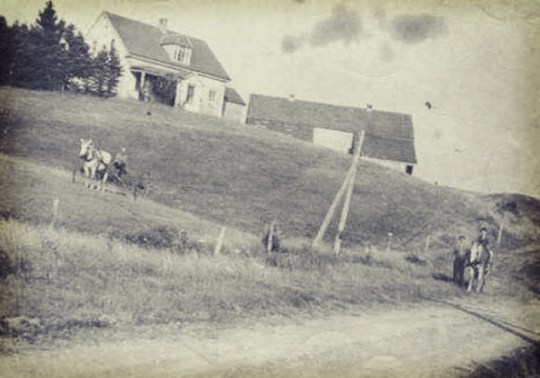
Mary Ellen Spook Farm
In January of 1922, farmer Alexander MacDonald, his wife Janet, and their adopted daughter Mary Ellen fled their home in Caledonia Mills, Nova Scotia after a rash of poltergeist activity, including more than 30 unexplained fires. Though several researchers, journalists, detectives, and paranormal investigators would eventually examine the farm and house, the so-called “fire spook” was never fully explained.
The poltergeist activity that had plagued the household for almost an entire year included moving the cattle around when no one was in the barn, mixing ashes into the stored milk, and even braiding the tails of horses. Most notable, however, were the fires which earned the haunting its name.
The fires would spring up spontaneously all over the house and grounds, often far from the hearth or any other source of a spark. Everything from wallpaper to wet towels were said to burst into flame: it got so bad that the family organized a kind of “neighborhood watch” to guard against arsonists, though none were ever found. Eventually, the family fled the property for good.
Once the family moved out of the house, journalists and would-be paranormal investigators moved in. Even Sir Arthur Conan Doyle was invited to explore the phenomena. Some of the most notable accounts include those of Harold Whidden, a reporter from the Halifax Herald, and police detective Peachey Carroll, who spent two nights in the house. During this time they both experienced several odd events, including the feeling of being slapped on the arm and face by phantom hands. Whidden was so troubled by his experiences that he never published them in his lifetime, though they have since been released by his family.
Another prominent investigator who visited the home for several days was Dr. Walker Franklin Prince, who concluded that the poltergeist activity emanated from the family’s then-15-year-old adopted daughter, Mary Ellen–this in spite of the fact that Dr. Prince, himself, experienced no unusual phenomena during his stay. Members of the family were even brought back to the house during his investigation in an attempt to “trigger” the ghost. Dr. Prince did, however, report unexplained rapping noises in his office back in New York for several weeks after he had completed his investigation into the Caledonia Mills “Spook Farm.”
Unfortunately for Mary Ellen, Dr. Prince’s suggestion that she was the cause, albeit unknowingly, of the fires and other poltergeist activity stuck with her throughout her life. People began calling her Mary Ellen Spook, and, according to some accounts, she was even confined to an asylum for many years. Regardless of the cause, after she and her family moved away from the farm in Caledonia Mills, the phenomena ceased.
However, that wasn’t the end of the story of the Caledonia Mills Spook Farm. Over the years, several other explanations have been put forth as new detectives attempt to solve the mystery. Edward J. O’Brien, a lecturer who stopped off at the nearby St. Francis Xavier University, posited that the fires might have been caused by radio waves passing through Caledonia Mills between the radio towers at Wellfleet, Massachusetts, and Glace Bay, Nova Scotia, though to modern science that theory sounds perhaps even more preposterous than “fire spooks.”
Arsonist or no, the Caledonia Mills legend persists. Even today, long after the farm and house have disappeared, people say that if you take home any item from the property, your house will burn down. According to one couple, who call themselves P.O.N.I. (Pair of Normal Investigators), “This has been tested by regular every day people and the buildings always catch fire.”
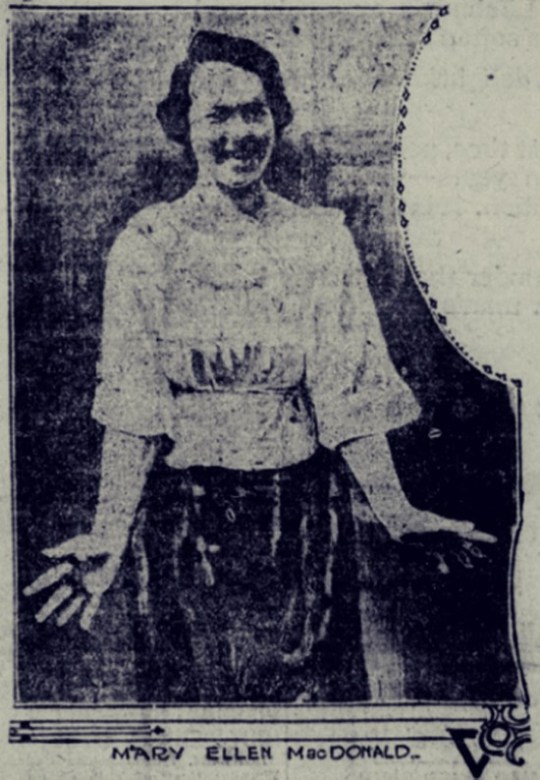
#Mary Ellen Spook Farm#Mary Ellen#ghost and hauntings#paranormal#ghost and spirits#haunted locations#haunted salem#myhauntedsalem#ghosts#spirits
49 notes
·
View notes